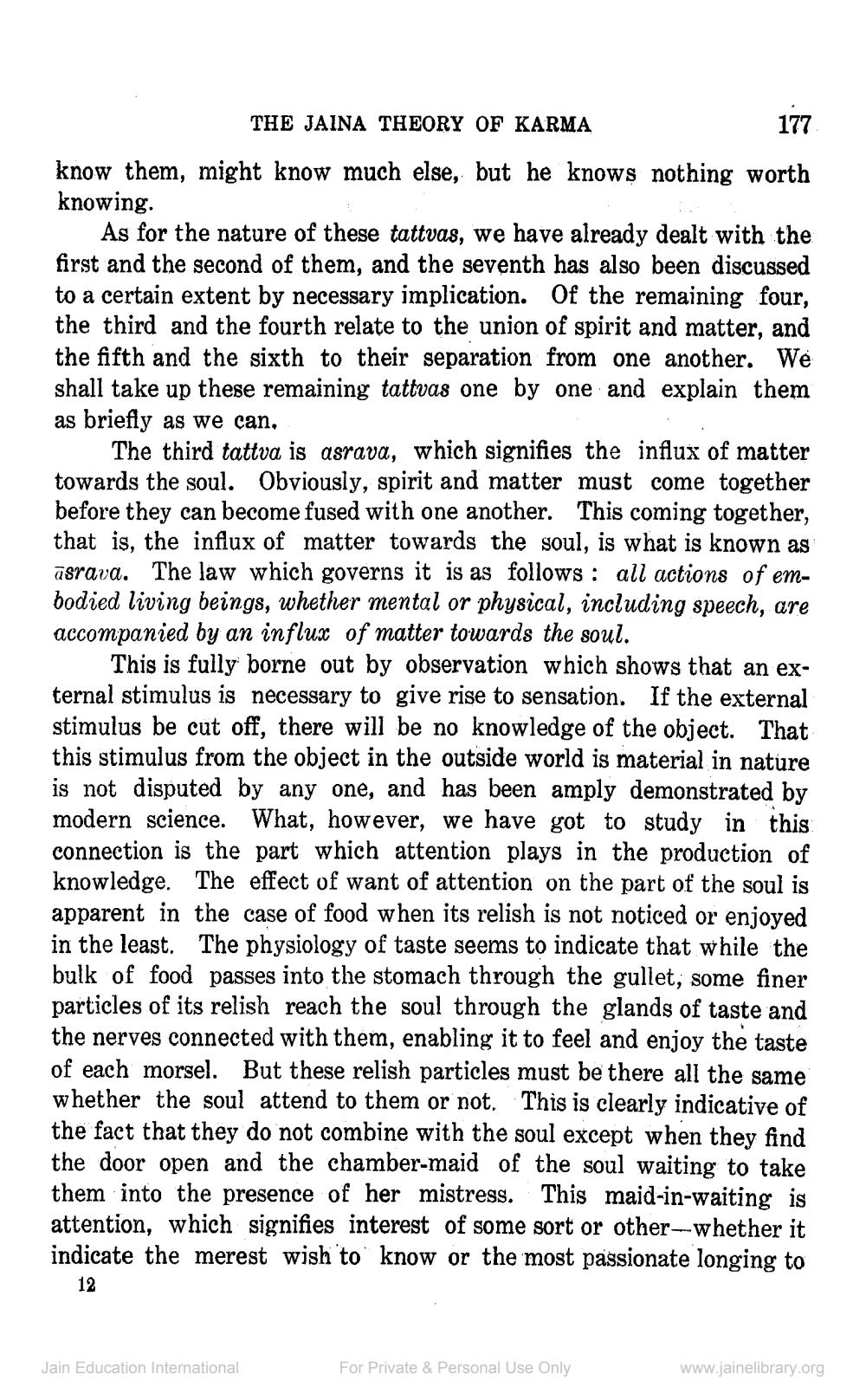________________
THE JAINA THEORY OF KARMA
177
know them, might know much else, but he knows nothing worth knowing.
As for the nature of these tattvas, we have already dealt with the first and the second of them, and the seventh has also been discussed to a certain extent by necessary implication. Of the remaining four, the third and the fourth relate to the union of spirit and matter, and the fifth and the sixth to their separation from one another. We shall take up these remaining tattvas one by one and explain them as briefly as we can.
The third tattva is asrava, which signifies the influx of matter towards the soul. Obviously, spirit and matter must come together before they can become fused with one another. This coming together, that is, the influx of matter towards the soul, is what is known as asrava. The law which governs it is as follows: all actions of embodied living beings, whether mental or physical, including speech, are accompanied by an influx of matter towards the soul.
This is fully borne out by observation which shows that an external stimulus is necessary to give rise to sensation. If the external stimulus be cut off, there will be no knowledge of the object. That this stimulus from the object in the outside world is material in nature is not disputed by any one, and has been amply demonstrated by modern science. What, however, we have got to study in this connection is the part which attention plays in the production of knowledge. The effect of want of attention on the part of the soul is apparent in the case of food when its relish is not noticed or enjoyed in the least. The physiology of taste seems to indicate that while the bulk of food passes into the stomach through the gullet, some finer particles of its relish reach the soul through the glands of taste and the nerves connected with them, enabling it to feel and enjoy the taste of each morsel. But these relish particles must be there all the same whether the soul attend to them or not. This is clearly indicative of the fact that they do not combine with the soul except when they find the door open and the chamber-maid of the soul waiting to take them into the presence of her mistress. This maid-in-waiting is attention, which signifies interest of some sort or other-whether it indicate the merest wish to know or the most passionate longing to
12
Jain Education International
For Private & Personal Use Only
www.jainelibrary.org




